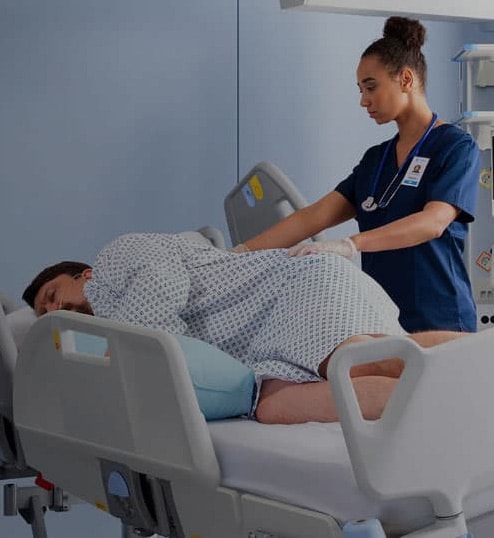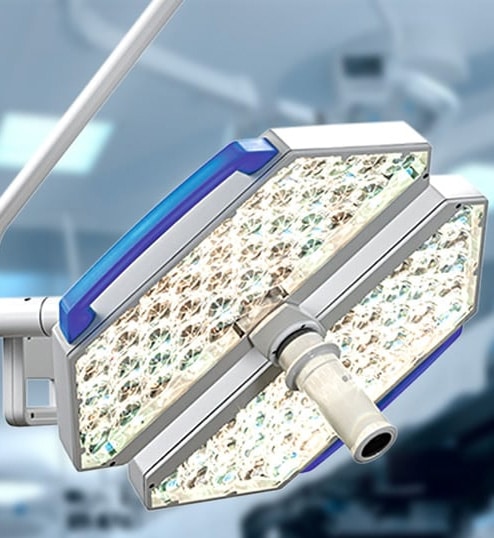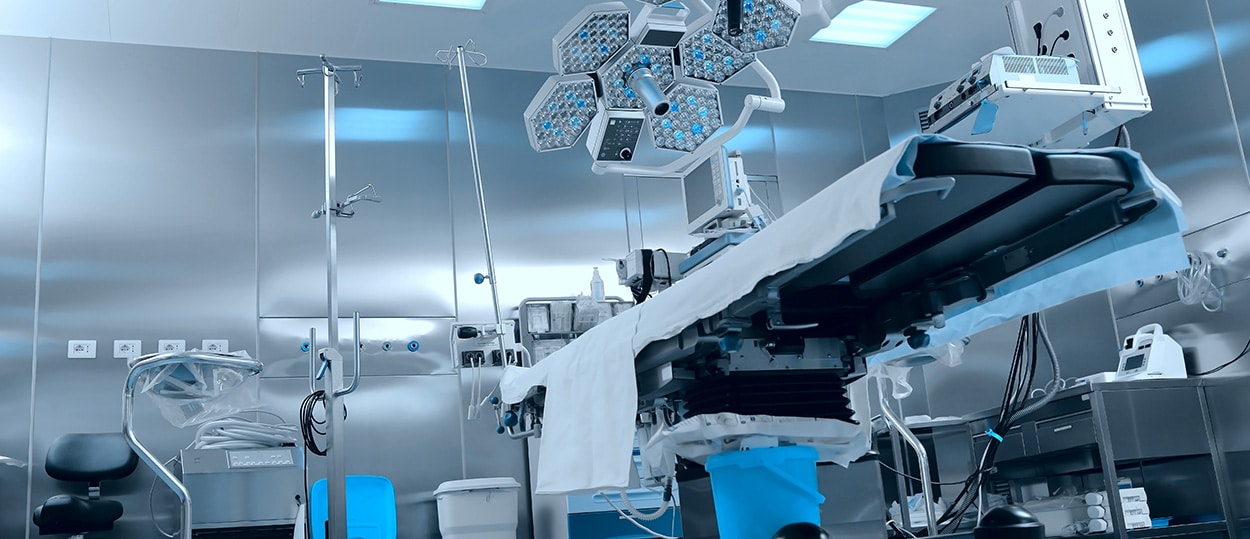Miniature motors play a key role in ensuring that medical devices are precise, reliable, and compact enough to integrate seamlessly into modern healthcare environments. At the heart of many life-saving technologies are medical equipment gearmotors, which power critical functions from patient care equipment to surgical tools.
Rotalink’s Expertise in Medical Applications
At Rotalink, we have extensive experience designing and supplying medical equipment gearmotors for various healthcare applications. Two notable case studies are our work on motors for hospital beds and surgical lighting.

Precision Gearmotors for Hospital Beds
Rotalink has developed miniature motors that provide precision movement for hospital beds, allowing for smooth adjustment in height, tilt, and patient positioning. These motors are designed to operate quietly and reliably and can withstand years of continuous use, even in busy hospital settings.
- Smooth and quiet operation for minimal disturbance to patients
- Reliable performance under continuous use
- Precision control for accurate adjustments to bed positioning

Gearmotors for Surgical Lighting
Another example of Rotalink’s contribution to medical technology is our work in surgical lighting. These lights require precise control for adjusting position, angle, and brightness to create optimal conditions for surgery.
- Precise positioning to meet surgical demands
- Quiet operation to maintain focus in the operating room
- Long-lasting durability to withstand frequent use
Miniature gearmotors could be used for several applications in the medical industry
Miniature gearmotors play a crucial role in the medical industry, powering a wide range of devices and equipment where precision, reliability, and quiet operation are paramount. These small but powerful motors enable the smooth operation of essential medical technologies, contributing to patient care and the efficiency of medical professionals.
Infusion Pumps and Ventilators
In life-supporting equipment such as infusion pumps and ventilators, gearmotors control the precise flow of fluids and air. They ensure consistent, reliable performance in devices that patients depend on for their well-being.
Robotic Surgery
Miniature gearmotors are used in robotic surgical systems, enabling precise movements for enhanced dexterity and accuracy in minimally invasive procedures. The motors control the movement of robotic arms, delivering exceptional precision and stability.

Miniature gearmotors are integral to the functionality of these devices, ensuring that healthcare technology remains efficient, reliable, and quiet, meeting the high standards required in medical environments. Rotalink specialises in designing and producing custom medical equipment gearmotors tailored to the specific needs of each medical application.
Rotalink’s Customisation Options for Medical Devices
At Rotalink, we understand that every medical device has unique requirements. That's why we offer a collaborative approach to developing custom medical equipment gearmotors. Whether you're developing an innovative piece of healthcare equipment or refining an existing design, we work closely with OEMs to create tailored motor solutions that meet your specific needs.
Key elements of our customisation process include:
- Detailed consultations with OEMs to fully understand the application’s requirements
- Rapid prototyping and testing to ensure the motor’s performance meets medical industry standards
- Tailored solutions that integrate seamlessly into the device's design
Commitment to Quality: ISO 9001:2015 Certification
Quality assurance is a critical part of our manufacturing process. Rotalink is certified under the ISO 9001:2015 Quality Management System, ensuring that every medical equipment gearmotor we produce meets the highest standards for quality and safety. This commitment to quality is particularly vital in the medical field, where the reliability of equipment can impact patient care.
Our motors undergo rigorous testing, including performance validation, durability checks, and environmental testing, to ensure they can operate effectively in demanding healthcare environments.











